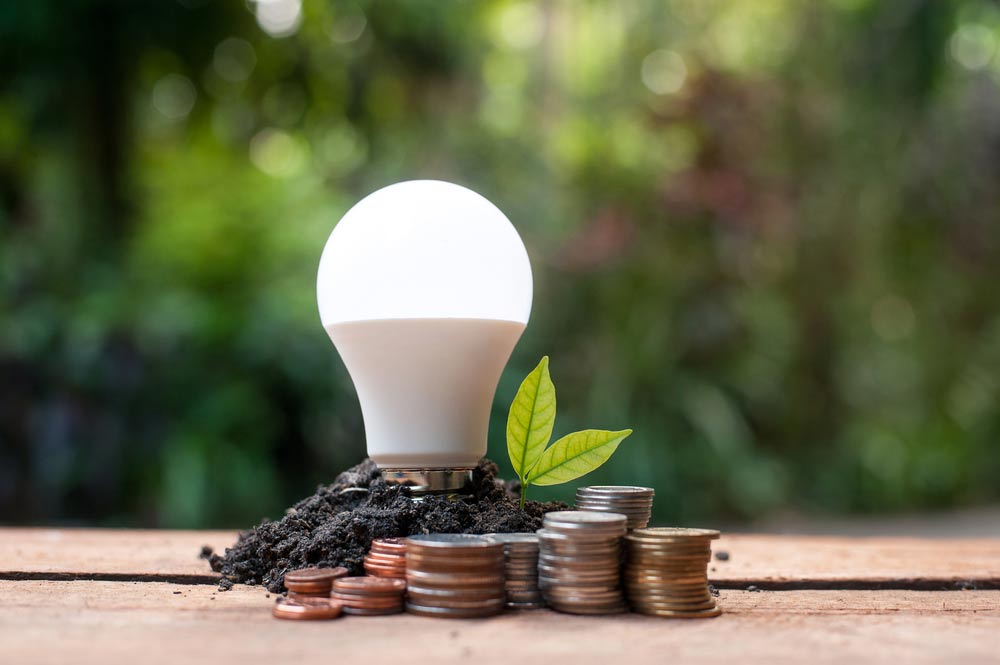- Servicing Queensland since 2010
How To Reduce Your Business’s Energy Costs
September 5, 2023
Taking a proactive approach to energy consumption is no longer a choice but a necessity. It’s about future-proofing your business, aligning with global sustainability goals and ensuring you remain competitive in a rapidly changing market. By implementing a few key strategies, you can ensure a more sustainable operation with lower energy costs.
Table of Contents

Why Reducing Energy Costs Matters
- Environmental Impact: Decreasing energy usage means less reliance on fossil fuels and a reduced carbon footprint.
- Operational Efficiency: Efficient energy usage often correlates with more streamlined operations and improved output.
- Long-Term Savings: Investing in energy-efficient solutions might require upfront costs, but the long-term savings can be substantial.
Transitioning To Solar Energy
One of the most significant changes a business can make is transitioning to solar power. Solar panels, especially in regions with ample sunlight, have the potential to revolutionise operations. This shift offers a range of benefits, including:
- A Renewable Source of Power: Solar panels harness the energy of the sun, a renewable source of energy. This ensures less dependency on non-renewable sources and a constant energy supply.
- Reduction in Energy Bills: Once the solar infrastructure is in place following the initial investment, the ongoing operational expenses decrease substantially. This also leads to a notable reduction in monthly energy bills for businesses.
- Energy Storage Solutions: Modern solar setups often come with energy storage systems, allowing businesses to store excess energy produced during the day. This stored energy can then be utilised during times of low sunlight or at night.
- Grid Independence and Security: By implementing a comprehensive solar system, businesses can reduce their reliance on the traditional power grid. This not only safeguards them from potential price hikes but also ensures a consistent power supply without disruptions.
- Improved Business Reputation: Embracing solar energy reflects a strong dedication to sustainable practices. This enhances a brand’s reputation and draws the attention of an expanding community of environmentally conscious customers and stakeholders.
The Scope Beyond Solar Energy
While solar energy is a powerful tool, several additional strategies can help you enhance energy savings for your business:
1. Embracing Energy-Efficient Appliances
Advancements in technology have led to the development of energy-efficient alternatives for almost every appliance. From the large machinery used in manufacturing units to the computers in office spaces, there’s an energy-saving variant available.
Apart from the immediate reduction in power consumption, these appliances tend to have a longer lifespan. This means fewer replacements and reduced waste. Most modern appliances come with energy ratings, indicating their consumption levels. The higher the rating, the less energy it uses. Familiarising oneself with these ratings can help you make informed decisions.
2. Regular Maintenance
Regular check-ups ensure all systems are working at optimal efficiency. A minor fault, when left unchecked, can lead to increased energy bills. Hiring professionals for maintenance services can help identify potential areas of concern before they manifest as major problems. Well-maintained equipment not only consumes less energy but also lasts longer, reducing the frequency of replacements.
3. Educate Your Team
Your team plays an important role in energy conservation. That’s why it’s important to:
- Create Awareness: Regular training sessions can keep the staff updated about the best practices in energy conservation.
- Empower Employees: Encourage employees to take ownership. Their hands-on experience with the equipment can lead to the identification of areas where energy can be saved.
4. Smart Building Solutions
Technology has paved the way for smart solutions that can adapt to usage patterns. Integrating these systems can help you reduce energy costs:
- Adaptive Systems: Devices like smart thermostats learn from usage patterns and adjust heating or cooling accordingly, ensuring energy is used only when necessary.
- Automated Controls: Lighting systems that come with sensors make sure to illuminate areas only when they are occupied. Similarly, automated blinds or shades can adjust based on the time of day, reducing the need for artificial lighting or excessive heating.
- Centralised Control: With smart building solutions, all devices can often be controlled from a central system or even remotely via mobile applications. This gives an overview of energy consumption patterns and allows for tweaks in real time.
- Scalability: As businesses grow, these smart solutions can easily be scaled up, ensuring energy efficiency is maintained irrespective of the size or number of operations.
Rethinking Energy Consumption
Incorporating these strategies not only aligns a business with global sustainability standards but also results in operational and financial benefits, including reduced energy costs. If you are ready to take the leap into a more sustainable energy future, consider reaching out to professionals who can guide you through this transition. Remember, it’s not just about immediate savings but building a foundation for a sustainable future. At Apollo Solar, our team is here to guide you every step of the way. We offer solar panels tailored to your needs and budget. Connect with us today!










